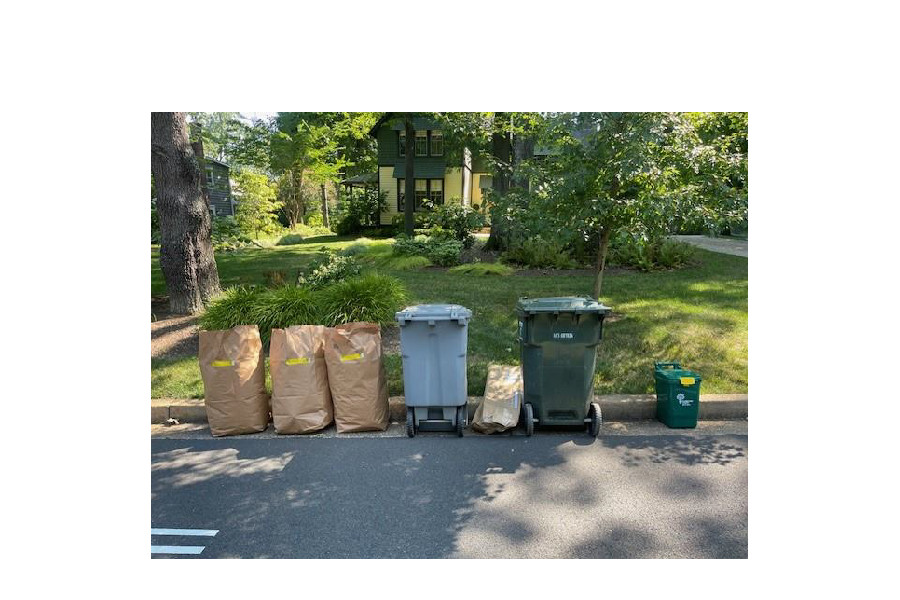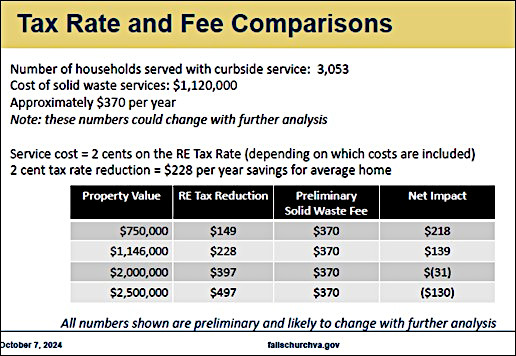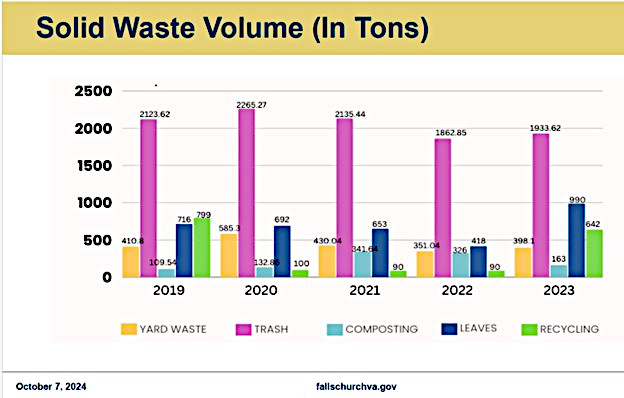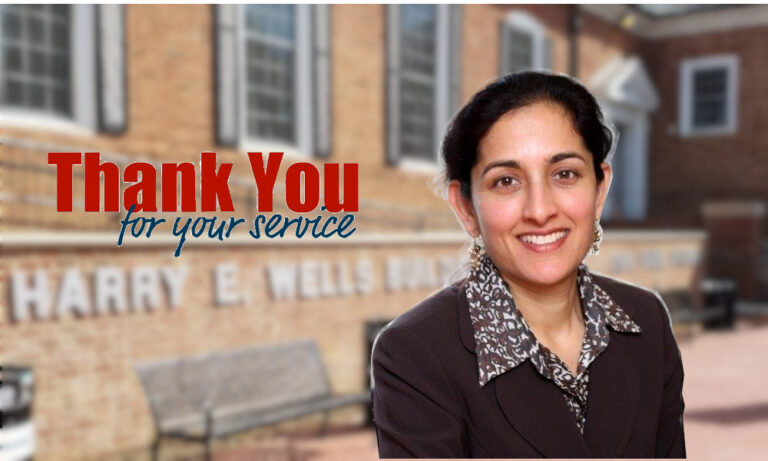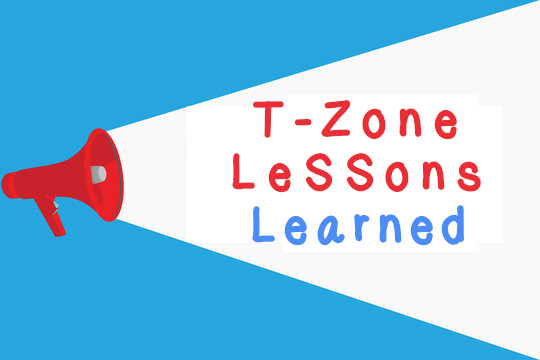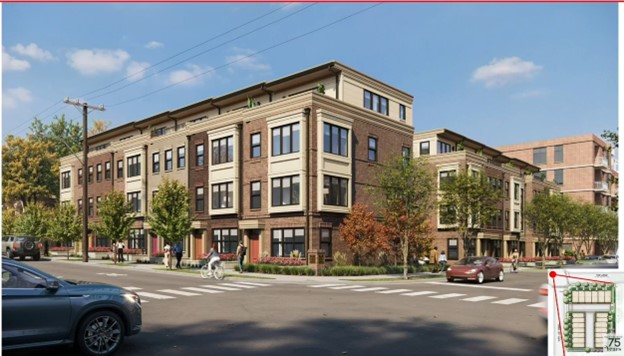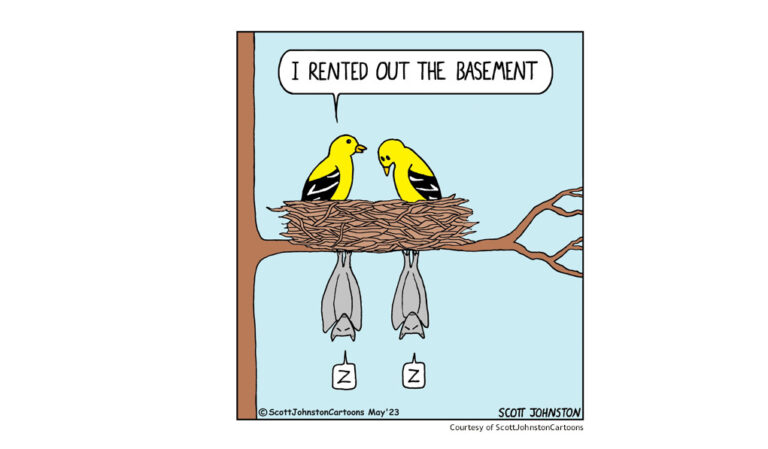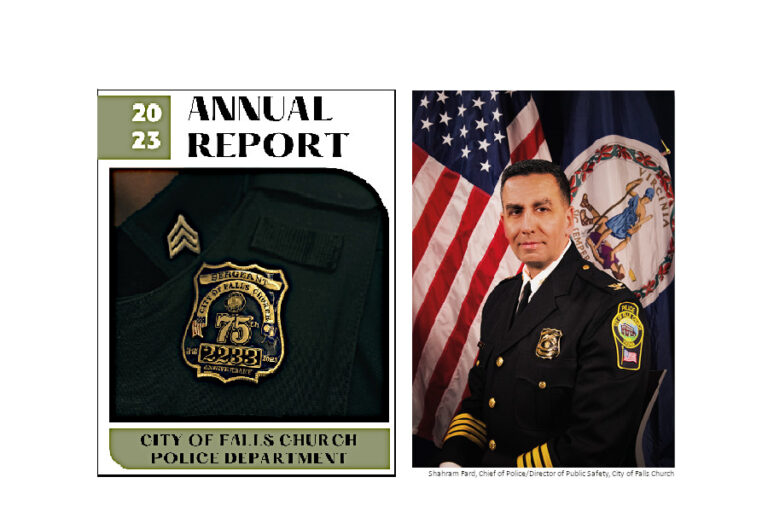City Council Mulls Moving to a Fee-Based System for Solid Waste and Introducing an Organics Bin
Summary
- Condo owners want to be eligible for City solid waste services that today are paid from general taxes. They currently have to pay for waste management services through their homeowners association (HOA) fees.
- Staff were asked to provide options that would be fair and equitable to condo owners. Two fee-based options and an option to provide a different waste service for condos were presented. City Council members were divided on these options and asked that staff continue to study this problem.
- Staff also presented an option to provide an organics bin to residents to reduce the waste going to landfills and incinerators, one of the City’s environmental sustainability goals. The City Council supported this concept, and staff will develop this option further.
Background:
Exploring alternatives to how the City charges for solid waste services was identified as a Council priority earlier this year, leading to its discussion at the October 7, 2024. City Council work session. The principal concerns of this discussion were:
- Reducing waste to incinerators and landfills for environmental benefits. An overall reduction in the amount of waste would lower waste management costs.
- The issue of fairness – residents in multifamily units say that they pay taxes but are not eligible for solid waste services from the City under the current system.
City Solid Waste Coordinator Lonnie Marquetti presented four options for paying for solid waste collection for discussion and further direction as to how the City Council would like to proceed. Although the City’s solid waste program includes the recycling center on Gordon Road as well as parks and public facilities, the focus of this discussion was on curbside waste collection.
How the City pays for curbside waste collection today
| Tipping Fees | $230,000 |
| Collection | $550,000 |
| Compost Program Subsidy | $70,000 |
| Miscellaneous | $20,000 |
| Leaf Program | $250,000 |
| Total Cost | $1,120,000 |
Source: Solid Waste Financing Option staff report, October 7, 2024.
The City provides curbside service to 3,053 customers for a total estimated cost of $1.12 million annually. A $550,000 collection fee is paid to American Disposal Services (ADS), and a $230,000 tipping fee covers payments to the Fairfax County I-66 Transfer Station, Freestate Farms, and ADS for receiving the waste.
This cost is paid through the general taxes collected and equates to about 2 cents of the real estate tax rate. Dividing this cost by the number of customers results in $370 per customer.
The 3,053 customers are primarily single-family homes and town homes. Some 117 town homes do not use the service because they are unable to accommodate the trash carts.
Option 1: Replace tax with a flat annual fee for trash pickup
This option would reduce the real estate tax rate for all commercial and residential properties by 2 cents and charge only those residential properties that use the curbside service about $370 per year.
This option was proposed as one that would address the fairness concern — only the users of the service pay for the service. It would provide greater transparency regarding the cost of curbside services and could be implemented as a separate line item on the real estate tax bill.
Ms. Marquetti provided an analysis of this fee-based option in the table shown. She said that most users would see a net increase in payments if a 2 cent tax decrease is offset by a $370 annual waste collection fee. In fact, the burden would be greater on those with lower cost housing. For properties assessed at $750,000, homeowners would see a net increase of $218 a year. Homeowners in properties above $2,000,000 would see a net decrease. There would also be new administrative costs that could increase the cost of this option.
Option 2: Replace tax with a “Pay-As-You-Throw” fee structure
This option addresses the fairness concerns and encourages households to reduce their waste. Users pay according to the size of their trash cans. For example, a 35-gallon bin could be $230 and the 65-gallon bin could be $415. Another alternative is a “pay per bag” system.
This more complex program would have higher administrative costs and would likely require an additional staff member. Other drawbacks of increased cost burden on lower priced properties remain.
Option 3: A third cart for yard and food waste
This option is proposed to reduce the waste going to landfills and incinerators. Arlington County already provides an “organics” bin, and this option would bring such a program to the City, too. Brush, yard waste, and food waste can be put into this bin.
Currently the City provides curbside composting to participants who pay $96/year. Providing this third bin to all customers is estimated to cost only $18 per customer per year. There would be a one-time cost of about $155,000 for the new bins.
Option 4: Provide solid waste services to condo associations
This option was raised to address the fairness issue raised by community members at Park Towers. Ms. Marquetti explained that providing service to multi-family condo developments may require changing the City’s ordinances, and staff would have to work with the homeowners association of each building as their needs can vary significantly.
There are also condos with commercial use on the ground floor. Ms. Marquetti did not recommend providing services to these mixed-use buildings as it may not be possible to separate commercial from residential waste in these buildings. There are three purely residential condos in the City, and six mixed-use condos. A preliminary estimate suggested costs in the range of $15,000 to $40,000 per building per year.
Option 5: Provide a rebate to condo owners
City Manager Wyatt Shields raised the possibility of providing a rebate to condo owners as it was raised by some members of this community. He said, after consulting with the City Attorney, that this is not a viable option under Virginia Law, even though it was done in Washington, DC.
Council discussion
Mr. Shields reminded Council that the status quo was also an option. The simplicity of the current system has enabled the City to have only one staff member, Ms. Marquetti, manage the entire City’s waste management needs. Although under the current option, not all taxpayers are able to benefit from this service, he said, “That’s not a unique situation. There are services throughout government that people can’t access for whatever reason or another.”
Council Member Justine Underhill asked why “pay-as-you-throw” would require additional staff. Ms. Marquetti explained that this option would require a consultant to characterize the waste to do the pricing and cost analysis. This analysis would need to be reviewed each year, and the added expense would need to be factored into the cost of this approach. Ms. Underhill also asked about the implementation timeline for the options. Ms. Marquetti indicated that it would be no earlier than 2027.
Council Member David Snyder said he was not in favor of special fees but saw many interesting ideas in Ms. Marquetti’s presentation. He noted that leaf collection is one of the larger solid waste costs at $250,000 per year and pointed out that the “Leave the Leaves” campaign by Falls Church Forward might save the City money while doing something good for the environment. He would like to see more outreach to the public on composting to reduce waste.
He also encouraged staff to explore other options for multi-family units such as looking into joint contracts and bringing providers together to look for savings for servicing those buildings.
Council Member Erin Flynn was not in favor of paying for curbside collection outside of the tax rate. “Because of the flat fee, you are placing a disproportionate burden on those households with lower assessed values,” she said. Ms. Flynn agreed with Mr. Snyder that “pay-as-you-throw” can be viewed as “incentivizing certain behavior” or “penalizing certain households” that cannot avoid generating more trash such as using disposable diapers or supporting larger households.
Ms. Flynn was in favor of exploring option 3, verifying the initial cost estimates, and option 4. She urged staff to look more closely at the three all-condo buildings to see what could be done. She would “prefer if we could not complicate this to a degree that we have to pay $200,000 in consultancy fees as opposed to paying $200,000 directly into a composting system.”
Vice Mayor Debora Schantz-Hiscott also hoped that option 3 could be implemented without using a consultant. Ms. Marquetti said that no consulting services would be needed to develop this option further.
Council Member Marybeth Connelly asked if the tax rate could be reduced for condo owners only as they do not currently receive curbside collection. Mr. Shields answered that that is not allowed under Virginia law.
Ms. Connelly said that under options 1 and 2, all condo owners would see a tax reduction immediately and not have to pay a City waste collection fee. (All commercial and apartment building owners would see a similar tax reduction.) It also has the advantage of treating all condo owners similarly regardless of whether there were mixed use buildings. She acknowledged that residents in Winter Hill would have to pay more under a fee-based scheme, some of whom are already cost burdened.
Ms. Connelly said, “Option 4 just creates a whole giant raft of additional problems that we’re bringing on to ourselves in an attempt to get to equity. … Option 4 just makes things so much more complicated than it needs to be when the elegant solution is option 1.”
Ms. Connelly was also in favor of option 3.
Mayor Letty Hardi agreed with Ms. Connelly on the simplicity and equity of option 1. She was also in favor of option 2, because “it is a lot more intuitive and I think it incentivizes the right behavior for people, which ultimately is what we want if we want to reduce and reuse our trash.” She recognized that option 2 was more difficult to implement and balked at the consulting cost.
Ms. Hardi was in favor of option 3. She asked how an organics bin for food and yard waste is currently handled in other jurisdictions.
Mr. Shields agreed to provide that information at a later date. Ms. Flynn cautioned that we should not compare Falls Church to jurisdictions that are considerably larger, suggesting it would be more appropriate to compare our City with other towns that have a similar population and geographic area.
Next steps
Mr. Shields asked the City Council for guidance on how to proceed. The City Council agreed to proceed with developing option 3, the organics bin.
On the other options to address the fairness and equity issues, Mr. Shields summarized his understanding of Council’s recommendation that staff “go back to the drawing board on the transparency and equity issues, and continue that thought process, and come back for another discussion on that.”
Reference
- City Council Work Session, October 7, 2024. This official video will not display properly on a small screen as it includes the agenda.
- City Council Work Session, October 7, 2024. YouTube video.
- Solid Waste Financing Options, October 7, 2024. Staff report.
- Solid Waste Financing Options PowerPoint, October 7, 2024.

